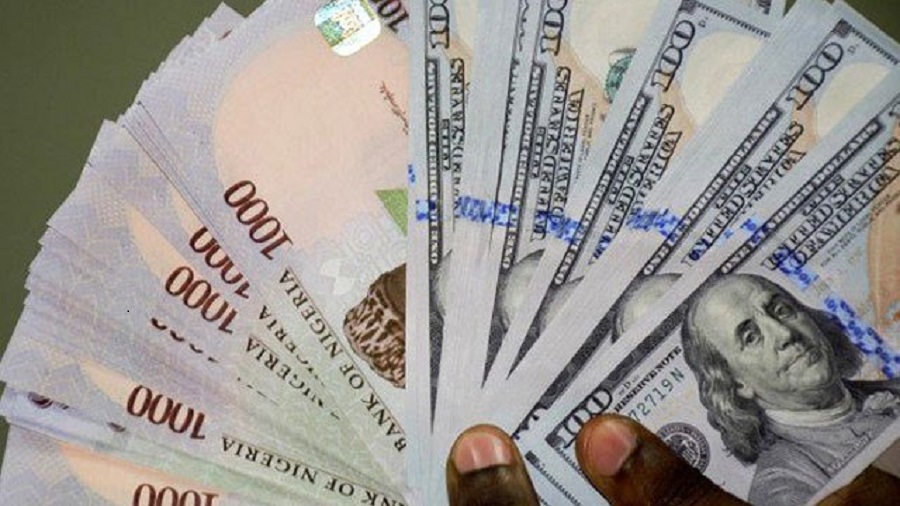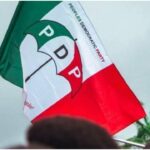
ONGOING developments in the foreign exchange market cast ominous clouds over the country. News of the naira’s continued buckling against other world currencies and the Central Bank of Nigeria missing its debt repayment schedule to deposit money banks deepen the concerns of businesses and international partners. President Bola Tinubu and the newly confirmed CBN Governor, Yemi Cardoso, must take firm, effective fiscal and monetary policy measures respectively to save the economy.
The naira crossed the N1,000 to $1 bar penultimate week at the parallel forex market, deepening panic across the business community. On Wednesday, it settled at an average N987-N996/$1, but this was cold comfort. With the official rate N778.6, the difference and therefore, scope for arbitrage is consequently over N200 per $1. Also, the rates are grossly inimical to an import-based economy, and worse, dollars are in short supply, gravely starving businesses, especially SMEs.
The apex bank’s default in clearing the over $10 billion forex debts owed DMBs as promised dampened hopes of a quick rebound for the naira.
This reminded observers of the contested size of Nigeria’s foreign reserves. While the American transnational financial giant, JP Morgan, said in August that contrary to the CBN’s claim of $37.8 billion in gross reserves by December 2022, Nigeria’s actual net reserves stood at $3.7 billion compared to $14 billion in 2021. It attributed the lower estimates to “larger-than-expected currency swaps and borrowing against existing reserves.”
But the CBN faulted that assessment, though it admitted owing JP Morgan and Goldman Sachs $7.5 billion. It insisted that it owned 80 per cent of the claimed funds in reserves, saying that the cited fluctuations, liabilities, and encumbrances were “natural and normal.” Cardoso must untangle this.
Cardoso inherits a chaotic, opaque, and politicised monetary policy system. Under his substantive predecessor, Godwin Emefiele, the CBN was weak, inefficient, and enmeshed in the murky politicking of the Muhammadu Buhari administration.
In its core mandates of managing the currency, interest rates and inflation, the CBN has been an abject failure. Regulation also suffered, and financial institutions – banks, non-banks, and bureaux-de-change — have run wild. Undeterred by the non-application of sanctions, or the fines that pale in comparison to the huge profits from rule-breaking, they violate regulations; short-change customers and the economy, and subvert the naira exchange, and interest rates.
To save the naira, tame inflation and rates, Cardoso should deliver on his promise to quickly clear the backlog of forex obligations and discontinue Emefiele’s unorthodox policies. As he admitted, meeting repayment and other obligations, and funding the market are crucial.
His pledge to enhance transparency, fix corporate governance, and restore the CBN’s integrity is urgent. Currently, opacity and administrative chaos prevail. Most unpardonably, Emefiele compromised CBN’s independence. Cardoso must restore that autonomy which is crucial for the success of any central bank.
“Independence,” declares the IMF, “has long been a cornerstone of central banking. This is particularly true for the monetary policy function, which is firmly entrenched in central banks’ legislative mandates and practices.”
Without compromising its autonomy, he needs to work with and harmonise monetary policies with the government’s fiscal policies to foster a more favourable macroeconomic environment that will stimulate productive activities, especially agriculture, manufacturing, and SMEs, and halt the naira’s free fall.
Policies should be pursued to promote exports and diversify dollar supply sources. He needs to tame the banks and the BDCs and the influence peddlers making billions from illegal arbitrage.
The CBN must be cleansed of corruption, inefficiency, and institutional weakness. There should be radical reforms to make it nimble, ICT-enabled, alert and ruthlessly efficient in enforcing the rules.
Cardoso should jealously shield the CBN from political and crony influence. His closeness to Tinubu should not compromise the bank’s autonomy either.
Reforming and calming the forex market should be his immediate priority, accompanied by moderating inflation and interest rates. Between them, Tinubu and Cardoso should save the economy.





